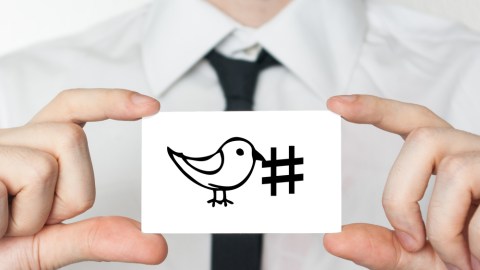Is Shonda Rhimes Right About Twitter (In)activists?

What’s the Latest?
Television showrunner Shonda Rhimes, famous for creating hit dramas Grey’s Anatomy and Scandal, gave the commencement speech this week at Dartmouth, her alma mater. Near the end of her address, Rhimes challenged the graduates to be assertive when fighting for causes, insisting they take action in real life rather than on Twitter:
“A hashtag is not a movement. A hashtag does not make you Dr. King. A hashtag doesn’t change anything”
What’s the Big Idea?
As Derrick Clifton of PolicyMic notes, Rhimes is not alone in her apprehensive feelings toward Twitter activism. Hashtag campaigns such as #Kony2012 and #CancelColbert were accused of being tone deaf. Viral activism such as the #BringBackOurGirls campaign made a whole bunch of people (including the First Lady) feel warm and fuzzy inside for a week’s time but now, two months after Boko Haram abducted those 250 children, the cause is but a distant memory (and the girls haven’t been heard from since). This speaks to Rhimes’ point: posting a hashtag requires no effort, no commitment, and thus invalidates any expectation of results.
On the other side of the coin, Rhimes’ detractors argue that the 21st century brand of activism is far more meaningful than she understands:
Sometimes I wonder what the anti-hashtag crowd would have thought about the folks who made the signs in the Civil Rights Movement
— W.E.B.B.I.E DuBois (@fivefifths) June 11, 2014
To say hashtags aren’t activism is the same as saying letter-writing campaigns and phone-a-thons aren’t. And you’d be wrong.
— Baeminist (@FeministaJones) June 11, 2014
Retweeting a hashtag may be the very least a person can do in support of a cause but it’s still something.This is the core of Derrick Clifton’s counter-argument, that 21st century awareness campaigns require social media groundswells to supplement on-the-ground action. The best way to attract the ears of mass media is to make a lot of noise on the internet. It worked to boost awareness for Invisible Children. It pushed race to the forefront of the Trayvon Martin debate. Many on Twitter even note the fact (even if the comparison is a bit apples to oranges) that Rhimes benefits from hashtags just as much as anyone else:
The point of hashtags in activism is to promote media awareness. Much like how Twitter keeps Grey’s and Scandal relevant. @shondarhimes
— Maxine Gibson (@ashe_phoenix) June 11, 2014
What do you think? Do Twitter campaigns such as #BringBackOurGirls encourage a supine brand of activism when what's really needed is assertiveness? Or is the re-tweeting of activist hashtags an important piece of 21st century populist e-democracy?
Is this activism of inactivism?
Read more at Policy Mic
Photo credit: lculig / Shutterstock





